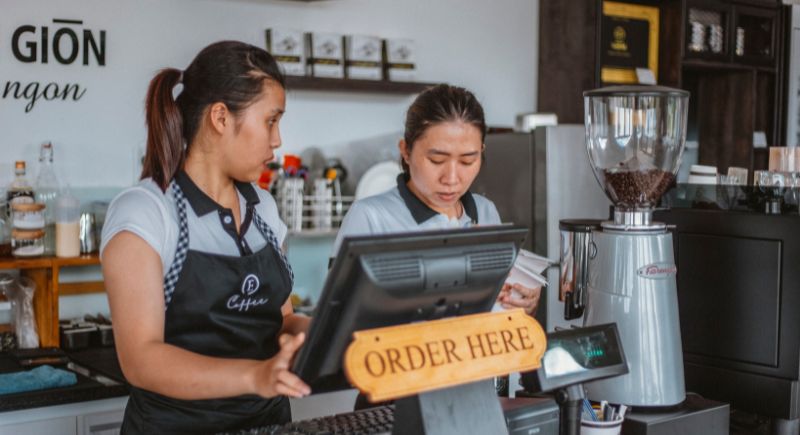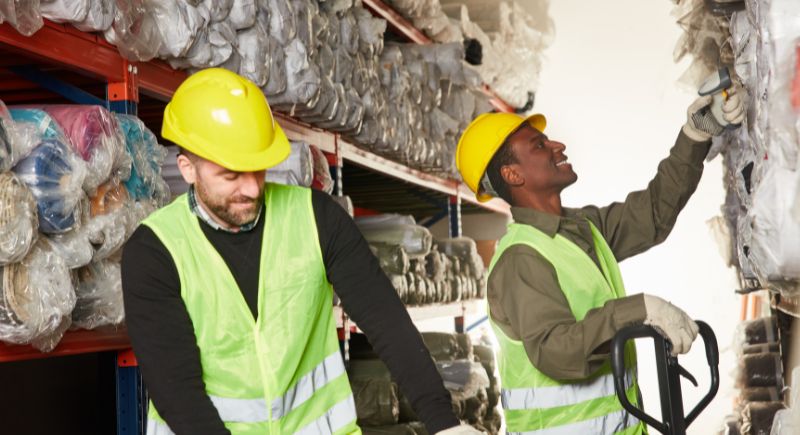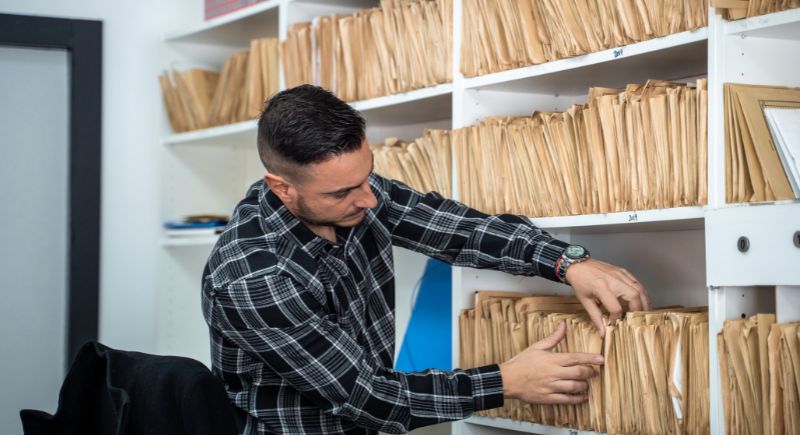11 Jobs That Could Vanish by 2030 Thanks to AI
AI aren’t stealing lunches yet, but they are getting really good at certain tasks—sometimes better than humans. Industries are evolving fast, and a few once-secure jobs could soon be as outdated as floppy disks. So, which careers are on the chopping block? Read below to find out.
Data Entry Clerks

Credit: Getty Images
Copying, pasting, and repeating sounds like a simple job for an individual, but AI can do it faster and with fewer errors. Data entry clerks have long been responsible for inputting and managing information, but companies are turning to automation to get it done in record time.
Telemarketers

Credit: Getty Images
AI-driven robocalls and chatbots are taking over the job. They are setting appointments and pitching sales. Chatbots and predictive dialing systems also analyze customer behavior and tailor calls for better results. Most people hang up anyway, so companies figure, why not let AI handle the rejection?
Cashiers

Credit: pexels
Automated checkout systems know how to calculate totals and detect theft. While some customers still prefer human interaction, stores are relying on AI to handle the workload. In a few years, the only thing standing between you and your groceries might be a scanner and a robotic “Thank you for shopping!”
Customer Service Representatives

Credit: Canva
Virtual assistants like ChatGPT, IBM Watson, and AI-driven customer support tools handle thousands of queries at once, and it’s a dream come true for businesses. Human agents still step in for complex issues, but companies now rely less on people to satisfy customers.
Order Pickers

Credit: Canva
Automated robots zoom around massive warehouses, grab products with mechanical arms, and deliver them to conveyor belts. These AI-driven logistics help businesses save time and money. Warehouses will still need a few humans to oversee operations, but the days of manually picking items off shelves are numbered.
Proofreaders

Credit: pexels
Grammarly and Hemingway Editor are taking jobs away from human proofreaders. These tools analyze massive amounts of text in seconds and flag errors even seasoned editors might miss. Professional writers and publishers have human empathy and skills, but AI is definitely catching up on the workload.
Paralegals

Credit: Getty Images
Paralegals are feeling the pressure as robots enter the legal world. Programs like ROSS Intelligence and LawGeex scan thousands of legal documents in seconds. Law firms also realize that AI can do the job faster and cheaper, so the need for entry-level legal assistants is reducing.
Travel Agents

Credit: PR Image Factory
Booking a vacation used to mean calling a travel agent. Now, a few clicks on Expedia or Google Flights get the job done. These platforms compare prices, suggest destinations, and even create custom itineraries. Luxury travel agencies still have a market, but people have started to lean toward the convenience of online booking.
Receptionists

Credit: Aflo Images
Virtual receptionists and automated phone systems are already scheduling meetings and greeting people at offices. It’s no wonder companies are streamlining operations using AI instead of paying for full-time staff at the front desk. Personal touch might be lacking now, but screens and automated voice recordings are learning how to put people on hold politely.
Fast Food Workers

Credit: Canva
Don’t be surprised if one day you see robots flipping burgers, assembling tacos, and even making coffee. Not only do they do these efficiently, but they also speed up service and cut costs. The future of fast food is starting to look like fewer human hands and more robotic arms.
Bank Tellers

Credit: Getty Images
Walking into a bank and talking to a teller is becoming a rare experience. Banks are cutting back on teller positions as more customers choose digital services. Even ATMs are getting smarter by allowing users to complete transactions without stepping inside a branch.
Dispatchers

Credit: Getty Images
AI-powered logistics software optimizes routes and coordinates deliveries better than any human dispatcher could. Uber and Lyft already use AI-based algorithms to match riders with drivers. Traditional dispatcher roles are fading as automation allows technology to take the wheel—literally.
File Clerks

Credit: jmartinstock
Filing cabinets are collecting dust, and so are file clerks. They once kept offices running smoothly, but now, AI does the job faster and with zero clutter. If you still picture rows of filing cabinets and stacks of manila folders, it’s time to update that mental image—AI has taken over the archive.